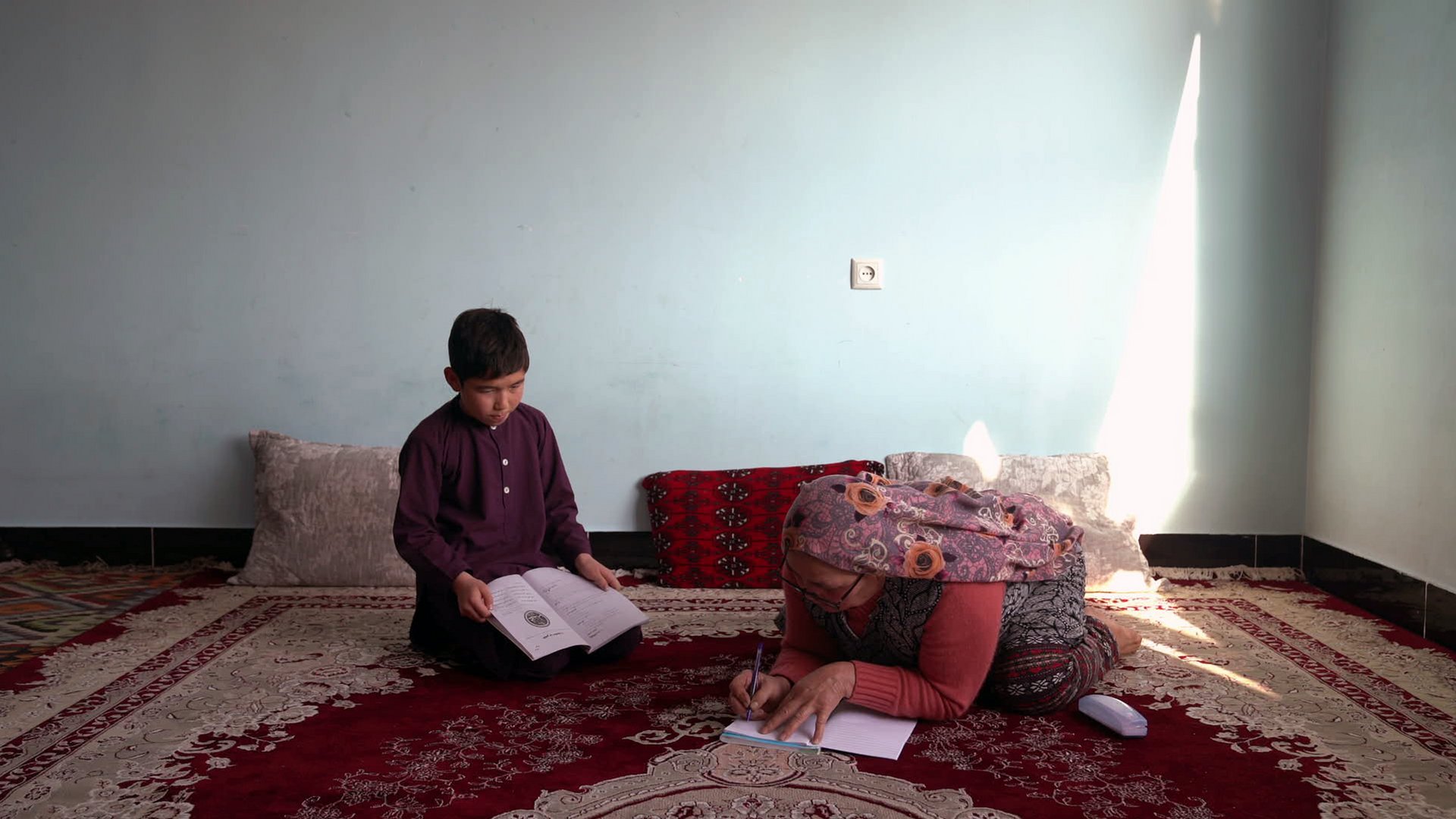
© Film Still Writing Hawa

© Film Still Writing Hawa
'Writing Hawa' tells the story of three generations of Afghan women—and has laid the foundation for a global movement. An Essay by Hasse van Nunen about the 'Learning with Hawa' campaign and the Afghan diaspora fighting for education and hope.
Afghanistan is the only country in the world where the law mandates that women and girls fully cover their bodies and faces. In addition, they are prohibited from speaking in public, interacting with non-Muslims, using public transport, and making eye contact with men who are not family members. They are also forbidden from attending school.
Many Afghan women around the world want to help. But they often feel powerless.
Since the Taliban took power in 2021, there has been a huge increase in the number of initiatives aiming to empower women and girls. The Afghan diaspora—comprising those who have just fled and those who have been in exile for years—is stepping up to speak out. They will not let this happen.
This is what led the filmmaker and the impact producer of Writing Hawa to build the impact campaign Learning with Hawa. Their goal: to get as many people living in the Afghan diaspora as possible to stand up for the women of their motherland.
Shot over a period of more than five years, Writing Hawa tells the story of three generations of women in one Afghan family, focusing on the filmmaker’s mother, Hawa. When Hawa is thirteen, she marries a man 31 years her senior. Although she has no romantic feelings for him, the couple have six children together. When her husband is diagnosed with Alzheimer’s disease, Hawa realizes that this is her last chance to make a fresh start as an independent woman. Forty years after her wedding, she begins building a life of her own. She learns to read and write, and starts a business making and selling Hazara clothes. But when the Taliban take over, her dreams—and those of her daughter, filmmaker Najiba, as well as her granddaughter Zahra—seem to vanish like snow in the sun.

Afghanistan has a history of keeping women out of education, and this film highlights the consequences. But it also reveals a time when things were different—and filmmaker Najiba Noori is a product of that time. She was able to become an independent journalist who married for love and runs her own business. This means that she can also help her mother to realize her dream. The viewer then experiences up close what Najiba’s niece, Hawa’s granddaughter Zahra, is facing as the Taliban approaches, making it clear what the country has to lose.
With the film now travelling all over the world to different festivals, the film team has been collaborating with Afghan diaspora organizations in all kinds of places. They start by facilitating conversations between small groups of diaspora women. Guided by trained female Afghan moderators, they talk about the psychological impact of refugee life: living in two worlds, having to face ‘survivors guilt’, often feeling powerless about not being able to do as much as they would like to for the women back home. These are conversations they have rarely had—especially not together.
The film team then pairs up the women that want to do more with an Afghan organization that provides online education to girls in Afghanistan. Because so much is still possible. All over the world, there are initiatives providing education by satellite, on websites, or through WhatsApp. This is a great opportunity for the diaspora to take concrete action and ensure that girls in Afghanistan can keep educating themselves.
A win/win: women abroad overcome their feelings of powerlessness while empowering girls in Afghanistan.
You will find more information about the film and the impact campaign—and how you can get involved too—at www.writinghawa.com